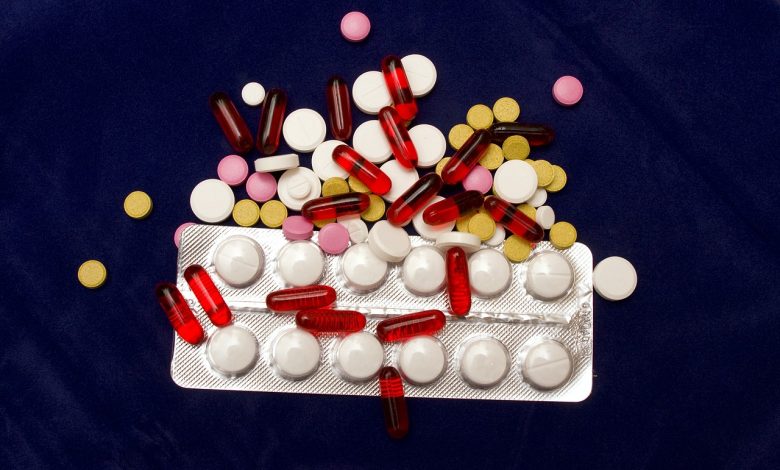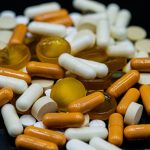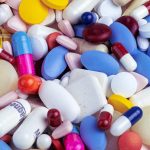List Of Drugs To Avoid In Liver Disease

Liver disease is a condition that occurs when the liver is damaged or not functioning properly. The liver is a vital organ that performs a wide range of functions, including filtering toxins and waste products from the blood, producing bile to help digest fats, storing glycogen for energy, and regulating blood clotting factors.
There are many different types of liver disease, including:
1. Hepatitis: Inflammation of the liver that can be caused by viral infections (hepatitis A, B, C, etc.), alcohol abuse, drug toxicity, or autoimmune diseases.
2. Cirrhosis: Scarring of the liver tissue that can be caused by chronic hepatitis, alcohol abuse, or other factors.
3. Fatty liver disease: Buildup of fat in the liver that can be caused by obesity, diabetes, high cholesterol, or alcohol abuse.
4. Liver cancer: Cancer that originates in the liver or spreads to the liver from other parts of the body.
5. Genetic liver diseases: Inherited conditions that affect the liver, such as hemochromatosis, Wilson’s disease, and alpha-1 antitrypsin deficiency.
Symptoms of liver disease can vary depending on the underlying cause and severity of the condition. Some common symptoms include jaundice (yellowing of the skin and eyes), fatigue, abdominal pain and swelling, nausea and vomiting, and weight loss. Treatment options for liver disease depend on the specific type and severity of the condition, but may include lifestyle changes, medication, surgery, or a liver transplant.
Liver Disease And Medications
Medications should be used with caution in people with liver disease because the liver is responsible for metabolizing and eliminating drugs from the body. When the liver is damaged or not functioning properly, its ability to process medications may be impaired, leading to a buildup of the drug in the body and potential toxicity.
In addition, some medications can directly cause liver damage or exacerbate existing liver disease in high doses or when used chronically. Other drugs, such as can be toxic to the liver even when used in therapeutic doses.
People with liver disease are also more likely to experience adverse effects from medications due to their reduced liver function and potential for drug interactions. As a result, medications should be used with caution in people with liver disease, and healthcare providers may need to adjust dosages or avoid certain medications altogether.
List Of Drugs To Avoid In Liver Disease
There are several drugs that should be avoided or used with caution in people with liver disease they include:
1. Acetaminophen (Tylenol): This drug is commonly used for pain and fever, but it can be toxic to the liver in high doses or when used chronically.
2. Nonsteroidal anti-inflammatory drugs (NSAIDs): NSAIDs like ibuprofen (Advil) and naproxen (Aleve) can also be toxic to the liver, especially when used chronically.
3. Aspirin: Like NSAIDs, aspirin can also be toxic to the liver when used in high doses or over a long period of time.
4. Statins: Statins are a type of medication used to lower cholesterol levels, but they can cause liver damage in rare cases.
5. Methotrexate: This drug is used to treat cancer, autoimmune diseases, and psoriasis, but it can be toxic to the liver and cause liver damage.
6. Antidepressants: Certain antidepressants, including tricyclic antidepressants (TCAs) and monoamine oxidase inhibitors (MAOIs), can cause liver damage.
7. Antipsychotics: Some antipsychotic medications, such as chlorpromazine and haloperidol, can cause liver damage.
8. Anti-seizure medications: Certain anti-seizure medications, such as carbamazepine and phenytoin, can cause liver damage.
9. Anti-tuberculosis medications: Some anti-tuberculosis medications, such as isoniazid and rifampin, can cause liver damage.
10. Antibiotics: Certain antibiotics, such as erythromycin and tetracycline, can cause liver damage.
11. Antifungal medications: Some antifungal medications, such as ketoconazole and fluconazole, can cause liver damage.
12. Chemotherapy drugs: Many chemotherapy drugs can be toxic to the liver and cause liver damage.
13. Herbal supplements: Some herbal supplements, such as kava and comfrey, can cause liver damage.
14. Vitamin A supplements: High doses of vitamin A can be toxic to the liver and cause liver damage.
15. Iron supplements: High doses of iron can be toxic to the liver and cause liver damage.
16. Immunosuppressants: Immunosuppressant drugs used to prevent organ rejection after transplantation, such as cyclosporine and tacrolimus, can cause liver damage.
17. Opioid pain medications: Opioids like morphine and oxycodone can cause liver damage when used in high doses or over a long period of time.
18. Diuretics: Certain diuretics, such as furosemide and hydrochlorothiazide, can cause liver damage.
19. Anti-anxiety medications: Benzodiazepines, such as diazepam and lorazepam, can cause liver damage when used chronically.
20. Anti-coagulant medications: Some anti-coagulant medications, such as warfarin and heparin, can cause liver damage in rare cases.
It’s important to note that this is not a comprehensive list, and there may be other drugs that should be avoided or used with caution in people with liver disease.
How To Safely Use Medications With Liver Disease
If you have liver disease, it’s important to take precautions when using medications to avoid potentially harmful side effects. Here are some tips for safely using medications with liver disease:
1. Consult with your healthcare provider: Before starting any new medication or supplement, talk to your healthcare provider. They can help you determine which medications are safe for you to use and in what dosage.
2. Avoid certain medications: As mentioned earlier, certain medications should be avoided in people with liver disease. Make sure to follow your healthcare provider’s recommendations on which medications to avoid.
3. Follow dosage instructions: Always follow the recommended dosage instructions for medications, and never exceed the recommended dose. In people with liver disease, lower dosages may be needed to avoid potential toxicity.
4. Monitor for side effects: Watch for any potential side effects of medications, such as nausea, vomiting, or abdominal pain. If you experience any side effects, contact your healthcare provider immediately.
5. Don’t mix medications without consulting your healthcare provider: Certain medications can interact with each other, potentially leading to harmful side effects. Always check with your healthcare provider before taking any new medication or supplement, and avoid mixing medications unless instructed to do so by your healthcare provider.
6. Avoid alcohol and illicit drugs: Alcohol and illicit drugs can be harmful to the liver and can interact with medications, leading to potential toxicity. Avoid these substances as much as possible, and talk to your healthcare provider if you need help quitting.
7. Get regular liver function tests: Your healthcare provider may recommend regular liver function tests to monitor how well your liver is functioning and to check for any signs of liver damage.
By following these precautions and working closely with your healthcare provider, you can safely use medications with liver disease and minimize the risk of potential side effects.





